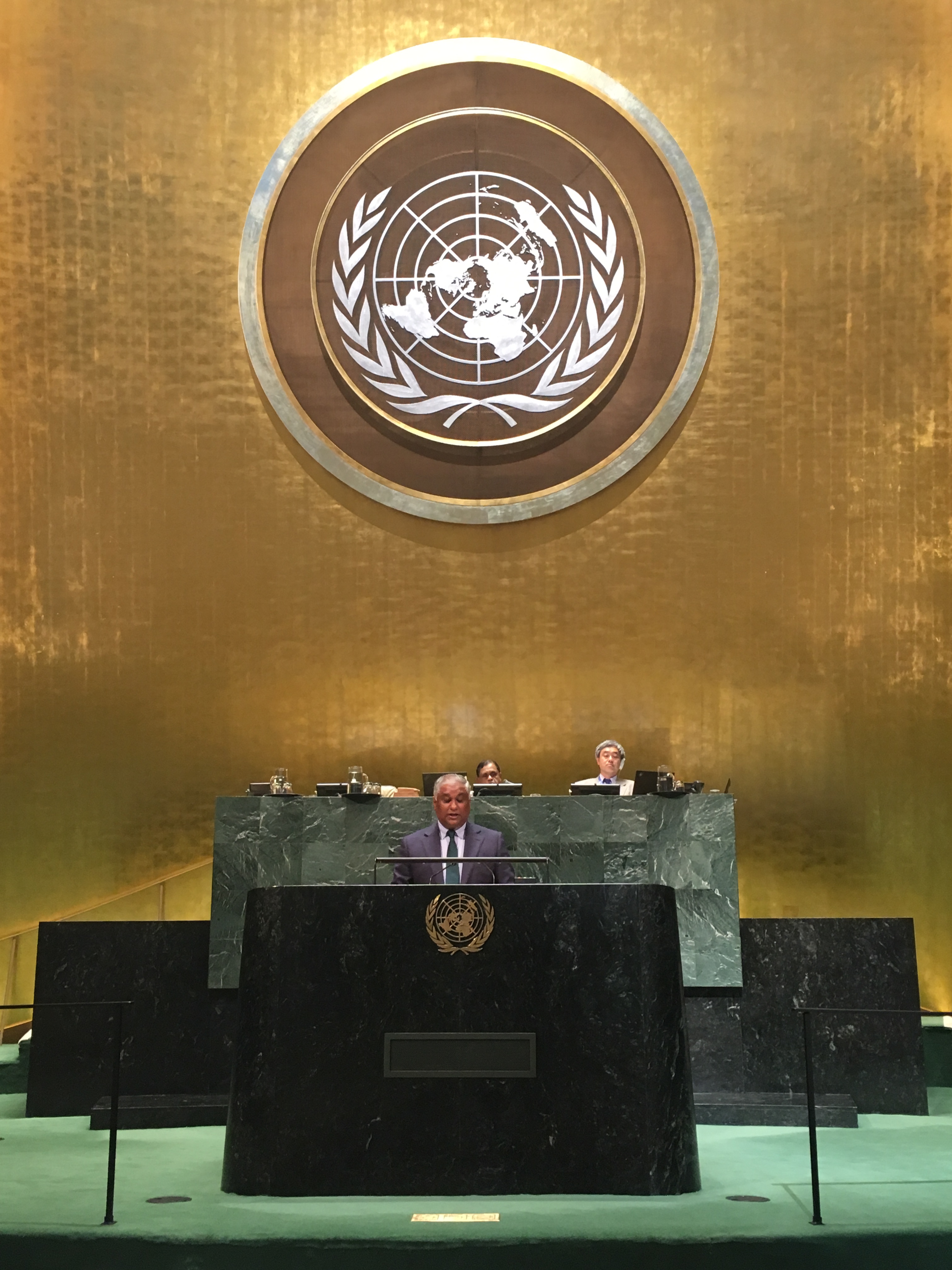FIJI’S permanent representative to the United Nations (PRUN) Ambassador Dr Satyendra Prasad has called for a comprehensive Nuclear-Test-Ban Treaty (CTBT).
He made the comments while delivering Fiji’s statement at the United Nations General Assembly yesterday during the observance of the International Day in New York, USA.
In his address, Dr Prasad said the CTBT was vital for the Pacific if we were to protect her people from the deadly effects of nuclear testing.
Dr Prasad said Fiji supported the call by the United Nations (UN) Secretary General António Guterres who said every effort must be made to bring about the immediate entry into force of the Comprehensive NuclearTest-Ban Treaty.
He added that Fiji knew first-hand what it meant to be at the frontlines of nuclear testing because the country was still a colony between 1957 and 1958 when several hundred Fijian soldiers participated in a nuclear testing activity held in the Pacific.
“Almost all have passed away, most in tragic health circumstances denied support and recognition from colonial authorities,” Dr Prasad said.
“We are not alone in this. Across the Pacific, whole communities were deliberately or indirectly exposed to nuclear testing on land, on seas and in the air. Tests were carried out in fragile ocean environments and on seabed in earthquake zones.”
While referring to nuclear tests that took place in French Polynesia between 1966 and 1974, he said the human and environmental impact of nuclear testing within the Pacific was not confined to the past but instead was a persistent threat to the pursuit of sustainable development.
Fiji is party to the Treaty of Rarotonga (South Pacific Nuclear Free Zone Treaty) which formalises a Nuclear-Weapon-Free-Zone in the South Pacific which came into force in 1986.
This treaty bans the use, testing and possession of nuclear weapons within the borders of the zone.
Fiji was among the first countries to ratify the CTBT in 1996 while also a proud signatory of the 2017 Treaty on the Prohibition of Nuclear Weapons (TPNW).
To date, eight countries have yet to sign the CTBT.




